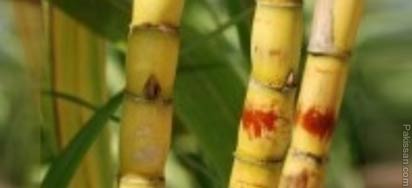|
Flawed cane policy
By Mohammad Hussain Khan
 THE
Sindh government has again fixed November 1 for mills to
start sugarcane crushing that will delay cane harvesting and
wheat sowing. THE
Sindh government has again fixed November 1 for mills to
start sugarcane crushing that will delay cane harvesting and
wheat sowing.
The delay in harvesting also affects the quality of cane and
results in financial losses to growers. The cane starts
losing weight after its period of maturity which is usually
9-10 months and the millers make unfair deductions in cane
prices.
According to Secretary Agriculture Sindh Agha Jan Akhtar,
the Sindh government has fixed sugarcane price at Rs127 per
40kg for this year. Cane production is likely to be the same
size as of last year although areas in upper Sindh’s katcha
belt and right bank of Indus have been hit by flood. The
contribution of these areas in cane production, however, is
not that big.
Growers say as sugarcane area has increased by 10 per cent
this year, cane production would have an edge over last
year’s production. The left bank sugarcane producing areas
have been benefited by rains.
Sugarcane in Matiari district is ready for harvest. Even
cultivation of ratoon crop is under way while sowing for
next year’s cane crop has also started. The most serious
aspect of the issue is the non-availability of land for
wheat sowing due to delay in cane harvest.
For wheat sowing mid-November is the most ideal time. For
this, lands should be free from sugarcane at least 20 days
before November starts for land preparations. But most
millers ignite their boilers after November or by mid
December, ignoring government instruction. If the Sugar
Factories Control Act is anything to go by, crushing should
start by October 1.
“Post mid-November sowing of wheat means 15 kg per acre per
day loss in yield. Then comes January 15, sugarcane starts
loosing its weight which means another loss to growers
though millers would get more sucrose,” argues cane grower
from Matiari Haji Nadeem Shah.
Figures available with the Cane Commissioner Sindh office
show that 32, out of 33 sugar mills crushed in 2009-10,
11.43 metric tons of cane to produce over 11,01,882 metric
tons of sugar.
The agriculture department’s statistic 2009-10 show that
cane was sown on 578,000 acres against 652,000 acres in
2008-09. But an agriculture department official fears that
cane production this year would drop due to floods.
Sugarcane needs 67 inches per acre of water. It is a cash
crop that gives by-products like gur, molasses, chipboard,
alcohol, paper and confectionary. It provides raw material
for chemicals, plastic, paints, synthetics, insecticides,
detergents. Pakistan is ranked fifth in world cane acreage
and 15th in sugar production.
A high delta crop, sugarcane is grown in perennial and
non-perennial areas of Sindh and takes full one year to
mature. Delay in harvesting requires additional supply of
water for two to three months and growers have to divert the
water towards the crop which would otherwise have been used
for wheat cultivation.
Land in Sindh has the potential to produce 1,850 maunds per
acre but the average yield remains around 468-507 maunds.
Historically per acre yield has been recorded up to 2,350
maunds per acre but that was in the 1950s when the first
sugar mill of the country was set-up in Tando Mohammad Khan.
During that period 700 to 900 maunds of cane per acre used
to be produced on an average because at that time the land
was very fertile and the cost of inputs was within growers’
reach.
Sugar consumption in the country is expected to be around
4.5 million tons this year, with a need to import around
1.2-1.4 million tons. The cultivators feel that with a fair
price fixation mechanism, sugar import is avoidable.
Pakistan, recalled Sindh Abadgar Board (SAB) president Abdul
Majeed Nizamani, had exported sugar in the past. “The
government should fix a fair price for cane after taking
into consideration sugar prices of previous three years. It
should also ensure that growers get the procurement price
without any hassle,” he said.
“The indifferent attitude of mill owners is forcing growers
to opt for other crops and since 2007-08, due to cane’s
payment problem, production is on the decline,” argues
Mehmood Nawaz Shah, general secretary SAB.
He said varieties with better recovery rate should be
promoted but it would only be possible when the government
pursues a transparent sugar policy, safeguarding growers’
interests and increasing productivity.
The growers’ future remains in jeopardy as they are
exploited by middlemen to whom they have to sell their crop
at a low price. The mills don’t issue them indent for cane’s
supply.
Growers’ emphasis is that cane payment receipt (CPR) should
be treated as a valid financial instrument and should be
acceptable by banks as cheque with 10 per cent margin. The
idea is in the implementation stage in Punjab but the Sindh-based
growers’ demand is falling on deaf ears.
Courtesy: The DAWN
|
Pakissan.com;
|